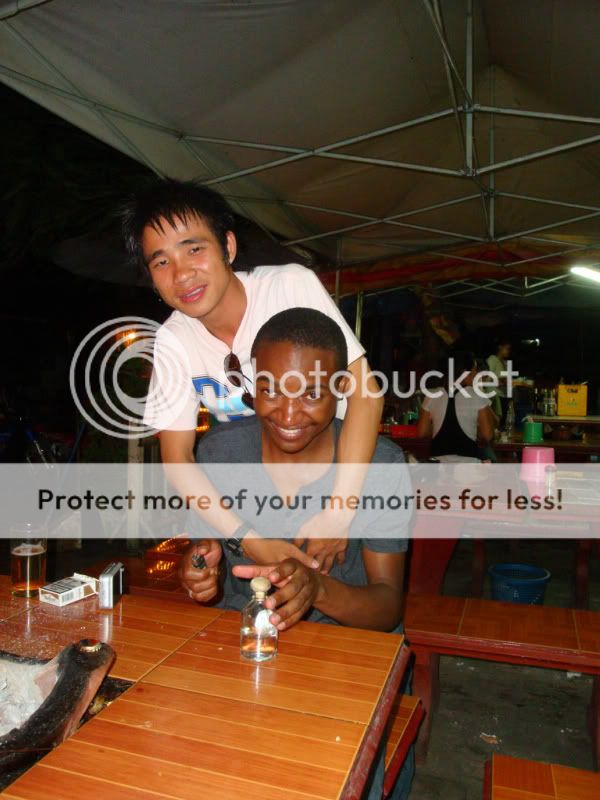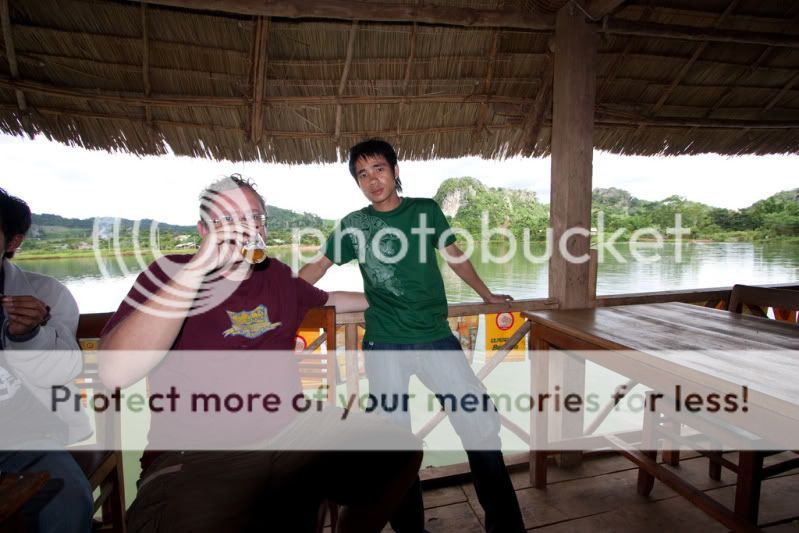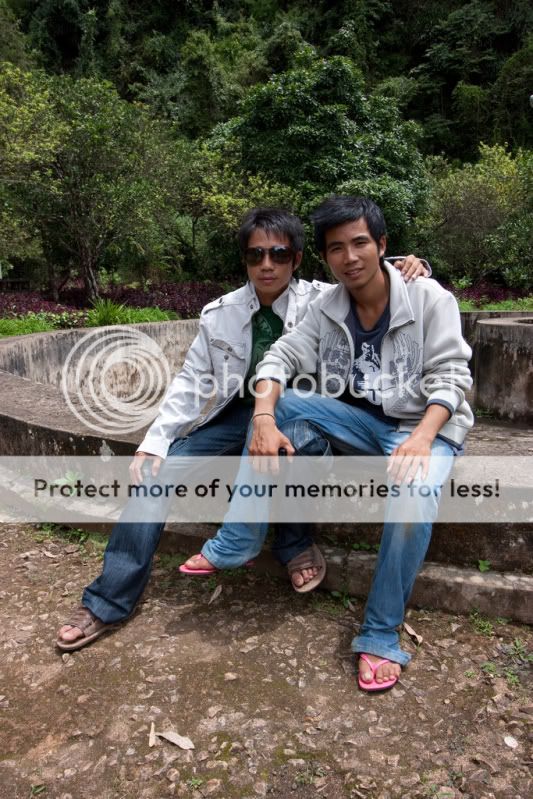Deep in the mountains of Indochina, on the shores of the mighty Mekong River, in the UNESCO World Heritage site of Luang Prabang where every city block features at least two Buddhist temples, each more beautiful than the last, sits the only gay bar east of Thailand. Khop Chai isn’t remarkable at first. It’s a tiny bar that a straight man like me can spend 10 minutes in before realizing all the patrons are male. Though gay-friendly hangouts aren't rare in neighbouring Vietnam and Cambodia, an outright “out” venue is nearly unheard of. Khop Chai is so rare that if you meet a gay man who has visited Laos, odds are he’s frequented this bar.
Khop Chai is decorated with the typical Asian combination of bamboo and garishness. Rope lights outline every available surface and bright disco lights accompany shrill dance music that blares into the street. Inside, tiny, gay Laotians flirt shamelessly with middle-aged westerners. Drinks are cheap, the food is good and there is always a local willing to share my table and ask me on a date. There is not, it seems, any fear of the country’s totalitarian government among these gay men.
In a way it is safer to be “out” in one of the world's last remaining communist countries than in small town North America. “Geoff,” the American-born co-owner, asked me not to use his real name – not for fear of Laotian authorities, but so his clients back in the U.S. won’t find out his orientation. (Being a foreigner, Geoff really can't own anything in The People's Democratic Republic of Laos, so he shares both businesses with his Laotian boyfriend).
Still, an openly gay business walks a tightrope in Laos. Khop Chai used to be called “The Cruising Gate” until Geoff bought it from the previous owner. When it changed hands, the Communist government told Geoff this name was no longer permissible. With Thailand's infamous sex trade right across the border, the government is becoming extremely sensitive to anything that might smack of prostitution, male or otherwise. However, its not just because Khop Chai is a gay bar that the name had to change. The government is sensitive to all sorts of things. For example Geoff's second operation, the Lao Lao Beer Garden was ordered to remove the word “beer” from its name so as not to appear decadent. (Incidentally, the Lao Lao Garden boasts the nicest patio and one of the tastiest menus in the city; beer is also available.)
Geoff returns to the U.S. every few months to maintain his tax-accountancy business, which is what really pays his bills. The two bars turn a small, but marginal profit, essentially paying for little more than Geoff's expenses while in Laos (though in fairness, he does well by Laotian standards).
It’s the sexual liberation in a country with no free rights that really attracts him. “How can you be in the closet in a country where there is no closet?” he asks me. Like neighbouring Thailand, the perception in the West is that Laos has a long history of tolerance when it comes to gay culture. This is not quite true. In a country where family is prized above all else and provides a necessary social safety net, a gay man who will never have children is viewed as a second-class citizen. A lady-boy (or kathoey, a gay male cross-dresser who is attracted towards men who are not considered to be gay) in contrast, provides a function — namely giving married men a way to have out-of-wedlock sexual intercourse without the danger of shaming the family with a bastard child. There is little or no shame in being a lady-boy, and the devout Buddhist culture seems to encourage tolerance towards gay culture.
Despite the government's attempts to quell prostitution, the economic imbalance makes something like it unavoidable. The average Laotian cannot afford to eat out at a restaurant, and the waiters make little more than a pittance. Gay western men arrive at Khop Chai with wallets full of bills and are served by waiters with bills to pay. In any relationship that develops, the Laotian male is not going to be the one treating his western date to dinner, wine and maybe a new pair of shoes. Its not prostitution by any means, but money, as the saying goes, is power.
This situation was epitomized one night around an open fire at the Lao Lao Garden. I found the waiter who had been flirting with me over yesterday's lunch sitting beside a 50-something American so drunk he could barely keep his eyes open. My flirty waiter's eyes brightened as I asked him a few questions, until his date wrapped a thorny forearm around his waist and growled, “he’s mine.” The obedience in my young waiter’s eyes was disturbing. That might be the harsh reality of the evenings, but in the daylight hours Khop Chai reveals its real purpose — it’s not only a workplace, but a refuge and hangout as well.
On my last day I meet two young waiters who epitomize this for me. They met in a monastery as young teens. Unable to pursue their relationship in their small village, as adults they chose instead to remain in Luang Prabang and work at Khop Chai. Geoff's operations are a gay version of the traditional Asian restaurant model — most are subsistence affairs designed to employ as many family members as possible. He employs over a dozen people, and one really gets the sense that they are a family of sorts, held together not by blood but by a need to maintain a corner of the city they can call their own.

























